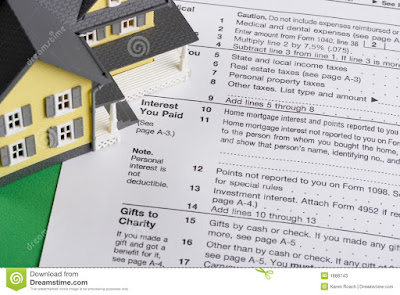Mortgage Interest Deduction - What Are the Terms Used in the Income Tax Deduction For Mortgage Interest?
A person can only use the standard deduction for mortgage interest, if she is a homeowner. The first item to check out with your tax preparer is whether or not you are a homeowner. Mortgage interest is deductible as a home mortgage interest deduction if it is acquired using the mortgage as a loan. It must be used on the same property as the primary residence. If you are married and file a joint return, then both of you can make use of the combined deductions.
Those homeowners who use their home as a place of business have to calculate their deduction based on the percentage of interest paid. Interest that is paid outside of the mortgage may be subject to an extra income tax. This amount is the sum of all interest paid plus interest paid on credit cards and loans. This can amount to a substantial amount. A mortgage cannot be used to purchase an additional unit that is used as a residence.
Mortgage interest that is used as part of the refinancing of a loan can also be subject to income tax returns. This interest is treated as an expense for the purposes of the home loan. If the value of the property decreases because of the refinancing, the mortgage interest will be deductible on the income tax returns of the principal amount repaid plus any amount by way of liens on the property. Any tax paid on this amount on the income tax returns will be offset by the amount of the deductible interest. Refinancing is usually a last resort before selling the home.
There are a number of other tax breaks associated with mortgage interest deductions. One tax break is the education tax deduction. Interest paid on qualified tuition programs that are part of the student's education can be claimed. Interest paid on the premiums of an individual health insurance plan can also be considered as one of the tax deductions. Educational expenses include college tuition, university fees and other educational expenses.
The federal estate and casualty tax laws provide deductions for some property purchases. A deduction is also available under the laws for selling a residence. Selling a residence to relieve personal financial debt or to pay for medical expenses does not qualify as a tax deduction. However, it is possible to take a larger deduction in situations when the proceeds from the sale go towards paying off debts or improving your lifestyle.
Mortgage Interest Only Loans offer a mortgage refinance option. For homeowners who have adjustable rate mortgages that have a higher APR than their original loans, a refinance loan can be an attractive option. These loans are referred to as interest only mortgages. In general, the homeowner is not required to make payments during the initial years of the loan. Instead, the interest only period begins and the payments will continue at a lower rate until the end of the loan term.
In some cases, a married filing separately is considered a qualified widow tax deductible. In general, the mortgage interest on a marital home is eligible for a deduction if the borrower is the sole beneficiary of the mortgage is held solely for the benefit of the borrower. If the borrower is not the sole beneficiary, the property can be considered marital property and included in the decedent's estate for the purpose of making a final estate tax settlement.
Any purchase price paid in full for a residential property that is a single family residence can be considered a deductible expense. This includes homes sold by homeowners to self-employed individuals for residential purposes. Also, excess debt may be deducted if the individual incurred the debt before retiring and the debt was primarily used for living expenses. Any purchase price paid for a residential home that is used as an investment may be eligible for a deduction.
